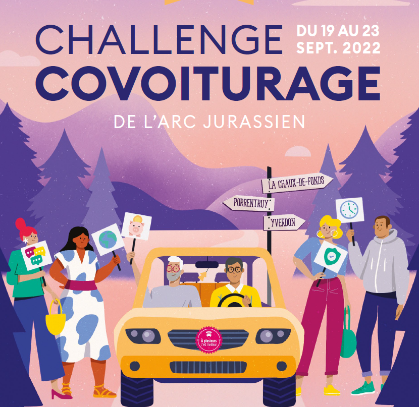Carpooling in the Jura Arc
2017
Cross-border cooperation is a partnership between private or public players, separated by a State border, whose actions have repercussions at regional and local level on either side of the border. Within the European area, 360° mobility across the border, the projects and policies that accompany this mobility in territories close to the border, and the progressive cross-border integration that this cooperation builds and gives rise to cross-border territories, characterise different experiences. To illustrate the results of more than 20 years of cooperation within the Mission Opérationnelle Transfrontalière (MOT), 20 unique experiments conducted by MOT members for the benefit of the inhabitants of cross-border territories were highlighted. In the Jura arc, the problem of mobility arises because of the cross-border employment area: the Doubs urban conurbation (AUD) is a binational area offering more than 40,000 jobs. It is the largest cross-border conurbation in the French-Swiss Jura arc. In this mid-mountain region, which has poor public transport links, the public authorities have naturally turned to promoting car sharing, seen as one of the most appropriate alternatives to driving alone.

Launched in 2011, the Jura Arc Carpooling project has been successively funded by the Interreg IV and Interreg V programmes. In response to the increase in traffic and major traffic jams in the region, the Arc Jurassien car-sharing project, funded by the Interreg programme, is putting in place a series of measures to raise awareness and encourage car-sharing among company employees. With the help of an Internet platform (covoiturage-arcjurassien.com) and a telephone exchange, users can more easily find a car-sharing partner. In addition to this platform, there is an infrastructure component, with the signposting of spaces reserved for car-poolers in car parks, in agreement with Swiss and French local authorities. The project partners are also organising « car-pooling challenges » to award prizes to the companies with the most car-poolers and to groups of car-poolers chosen at random.
The results of this project, which covers the 230 km of the Franco-Swiss border, are very positive. Between 2011 and 2016, carpooling in the area concerned rose from 13% to 25% among the 27,500 employees of the 90 member companies. The project has also helped to reduce CO2 emissions and traffic congestion, as well as improving road safety.
In 2017, the project has more than 135 members.
Aims of the project
-
Offer an alternative to individual car journeys by improving the quality of life in towns and villages located on major roads
-
Reduce CO2 emissions in the region
-
Increase the economic attractiveness of the region
Partners
-
Haut-Jura Regional Nature Park (FR)
-
Pays Horloger (FR)
-
Pays du Haut-Doubs (FR)
-
Pays des Portes du Haut-Doubs (FR)
-
Pays de Montbéliard Agglomération (FR)
-
Communaute de communes du Sud-Territoire (FR)
-
Association intercantonale arcjurassien.ch (CH)
-
Association for the development of economic activities in the Vallée du Joux (CH)
-
Association Région Val de Travers (CH)
-
Association pour le Développement du Nord Vaudois (CH)
-
Agglomération Urbaine du Doubs (CH)
-
Republic and Canton of Jura (CH)
-
Bernese Jura Council (CH)
Total cost
585,904 (Interreg IV) + €1,809,427.87 (Interreg V)
European subsidies
142,882 (Interreg IV) + €444,103.80 (Interreg V)